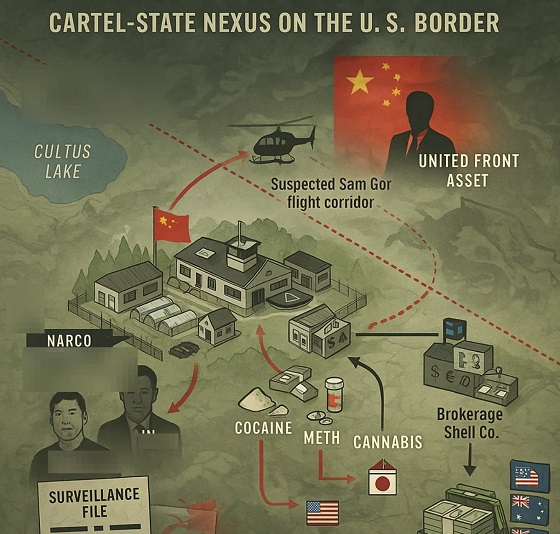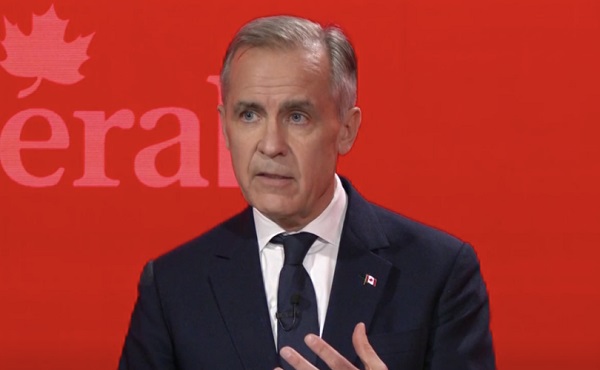COVID-19
House COVID Committee Confirms What We Have Long Suspected — The Feds Really Hate Transparency

 From the Daily Caller News Foundation
From the Daily Caller News Foundation
Last week details emerged from the House Select Subcommittee on the Coronavirus Pandemic, confirming what government transparency advocates long suspected: Federal bureaucrats are purposefully stonewalling the American people’s right to know about their government.
Republican Kentucky Rep. James Comer, who chairs the full House Oversight and Accountability Committee, read from an email that Dr. David Morens, a top aide to Dr. Anthony Fauci, sent claiming that a staffer inside the National Institutes of Health (NIH) had shown him how to erase records requested by the public.
He was corresponding with Peter Daszak, president of EcoHealth Alliance, the organization that used tax dollars to fund controversial gain-of-function research in Wuhan, where the COVID outbreak began. The Department of Health and Human Services has since suspended funding of EcoHealth Alliance.
Morens wrote: “I learned from our FOIA (Freedom of Information Act) lady here how to make emails disappear after I am FOIA’d, but before the search starts. So, I think we are all safe. Plus, I deleted most of those earlier emails after sending them to Gmail.”
The implications for government transparency are enormous. How often do NIH staffers conceal what they do with our tax dollars? Why did a FOIA officer feel empowered to assist subjects of FOIA requests? How else do FOIA offers interfere with these requests? Has this behavior spread to the Centers for Disease Control and other agencies?
Our auditors at OpenTheBooks.com can speak to the problem. We have spent years — and gone to court — to force NIH to reveal the royalties paid to government scientists through medical innovation licensing.
When Americans are considering a drug or therapeutic recommended by public health officials, they deserve to understand all the financial stakes at play. Were any decision makers receiving payments? Were they continuing more lucrative research at the expense of other public health solutions?
For many, the question looming largest has been whether the relentless COVID vaccine push was driven by a potential windfall for NIH and certain scientists there.
When we first filed a FOIA, the agency ignored us and then refused to release the information.
After suing, NIH was required to release the information and began doing so incrementally due to the high volume of data. Tallied from 2009 through 2020, it amounted to an enormous sum–over $325 million paid by private companies to NIH and its scientists over 56,000 transactions.
Previously, we’d also discovered that Dr. Fauci, the face of the nation’s COVID response, was the highest compensated bureaucrat in the country. He out-earned President Biden. He out-earned his own boss, then-Acting NIH Director Lawrence Tabak.
Along with Fauci, who scoffed at concerns about royalty payments, Tabak faced questions from Congress.
In a March 2023 budget hearing, Rep. John Moolenaar told Tabak an obvious truth: every single, secret royalty payment represents a potential conflict of interest.
“To me, one of the biggest concerns people had during this last couple years is: Were they getting truthful information from their government? Could they trust what people were saying about the medicines? To me, that creates a very disturbing appearance.”
“The idea that people were getting a financial benefit from certain research that was done and grants that were awarded, that to me is the height of the appearance of a conflict of interest,” Moolenaar concluded.
The lawmaker urged NIH to make the money trail more transparent.
It was Tabak in the hot seat again last week, as Comer recited Morens’ outrageous email message.
Was the behavior he described consistent with NIH policy, Comer asked? “It is not,” Tabak responded flatly.
Did the FOIA team at NIH help its colleagues avoid transparency? “I certainly hope not,” Tabak offered.
Hope doesn’t suffice in this situation. It demands that lawmakers strengthen transparency law, update it for the 21st century and create some consequences for bad actors.
There are a few primary ways bureaucrats and decisionmakers violate the spirit of the law.
First, they overuse a series of exemptions designed to protect national security secrets or privacy laws. Too much is omitted through these exceptions; the American people deserve the full truth.
When documents are produced, they’re too often rendered useless through excessive redactions. We’re still fighting in real time to get more pieces of the royalty puzzle revealed.
Next, unreasonable delays are blamed on staffing levels, while many FOIA-related roles sit open. Agencies must prioritize filling those seats and Congress should appropriate more of them as needed.
Finally, we have the behavior Morens describes. A post facto effort to simply abscond with the information. It’s not just a policy violation but an affront to the spirit of the Freedom of Information Act. What consequences do these staffers ever truly face?
Until we get serious about protecting transparency, “FOIA lady” will be a duly anonymous symbol of what many have suspected: government employees hustling to cover their tracks.
Adam Andrzejewski is founder & CEO of OpenTheBooks.com, the nation’s largest private database of public spending.
COVID-19
Vaccines: Assessing Canada’s COVID Response


 David Clinton
David Clinton
I planned to be “first in line” for the shots as soon as my age cohort became eligible. By early March however, COVID itself dropped by the house, leading to the most uncomfortable (although non life-threatening) week of my life.
It’s been five years since COVID hit and one part of me wants to stuff it all in a closet somewhere and forget about it. But perhaps certain events – and especially government errors and overreach – should be documented. So this post will identify actions at all levels of government from those early days that, given our understanding of the threat available through the benefit hindsight, were both misguided and damaging.
I haven’t completely forgotten the mood through the early months in 2020. Politicians faced near-unanimous public demand for an aggressive response. Much of that sentiment was the result of messaging coming from foreign governments (mostly in the U.S.). But the local sentiment was definitely there.
To be fair, Governments got some things right and, taking into account the chaos and uncertainty of those early months, even some of their mistakes were understandable. But it’s the job of government to lead. And to avoid making choices – even popular choices – that will lead to predictable harms.
Vaccine mandates starting in 2021 were a case in point. Federal authority largely stemmed from the 2005 Quarantine Act and the Contraventions Act that allowed officials to issue tickets for non-compliance with the Quarantine Act. Provincial mandates were based on laws like Ontario’s Emergency Management and Civil Protection Act. The question isn’t whether the mandates and their enforcement were legal, but whether they caused more harm than good.
As the first vaccines started arriving in Canada around February 2021, I planned to be “first in line” for the shots as soon as my age cohort became eligible. By early March however, COVID itself dropped by the house, leading to the most uncomfortable (although non life-threatening) week of my life.
After recovering, my family doctor advised me to wait three months before getting the shots so my body could get back to normal. During those months, I got access to preprint results from the Israeli study into natural immunity which showed that:
Natural immunity confers longer lasting and stronger protection against infection, symptomatic disease and hospitalization caused by the Delta variant of SARS-CoV-2, compared to the BNT162b2 two-dose vaccine-induced immunity
Those results were later confirmed by CDC and NEJM studies, among others.
Given that context, I didn’t see any justification for exposing myself to even minimal health risks associated with vaccines. Which meant that, despite demonstrably posing no threat to public health, I would (at various times) be unable to:
- Board domestic commercial flights, VIA Rail, Rocky Mountaineer trains, and cruise ships within Canada
- Board international flights or trains departing Canada
- Freely return to Canada through an overland point of entry
- Upon return to Canada, bypass the 14 day quarantine under the Quarantine Act
- Upon return to Canada via air, bypass the three day quarantine in (expensive) government-approved hotels
- Engage in ‘non-essential” activities like restaurants, gyms, events (details varied from province to province)
- Enter Parliament
- Seek employment in federally regulated air, rail, and marine sectors
What should Canadian governments have done? Remove restrictions on individuals with natural immunity, obviously. Which, by the way, would have come with the valuable bonus of entirely avoiding the truckers protest and consequent confrontations.
If authorities were reluctant to take us at our word on immunity, they could have followed the European Union’s lead by emulating their Digital COVID Certificate for proof of recovery. Were they worried about people without immunity creating fake certificates? Hard to take that one seriously. There were more fake vaccine passports littering the streets of Ontario than abandoned Toronto Maple Leafs car window flags in a normal early May.
In the end, my own suffering was negligible. I didn’t really want to visit family in the U.S. all that much anyway. But for millions of other Canadians, the real-world stakes were far higher. And all that’s besides the billions of dollars wasted during those years’ government policies.
To be sure, resisting unscientific street-level calls for vaccine mandates would have required courage. But shouldn’t acts of courage be a source of pride for public officials?
Subscribe to The Audit.
For the full experience, upgrade your subscription.
Addictions
New Report – Five years on: Tracing the costs of lockdowns

In 2019, 67 percent of Canadians rated their mental health as “very good or excellent.” By 2023, that figure had dropped to just 54 percent.
A new report from the Justice Centre for Constitutional Freedoms examines the immediate and long-term negative impacts of Covid lockdowns, including physical, social, and economic harms. It also underscores the lack of transparent, evidence-based analysis by governments to justify these measures.
The report details how policies introduced with the stated goal of saving lives came at an extraordinary cost to Canadians’ mental and physical health, access to healthcare, economic security, and civil liberties.
One of the most concerning findings is the sharp decline in Canadians’ mental health. In 2019, 67 percent of Canadians rated their mental health as “very good or excellent.” By 2023, that figure had dropped to just 54 percent.
Meanwhile, the number of Canadians reporting “fair or poor” mental health nearly doubled—from 8 percent to 15 percent. This trend was seen across all age groups, but especially among young adults.
Indeed, despite facing minimal risk from Covid, young Canadians suffered some of the most serious consequences of lockdown measures. Non-Covid deaths among Canadians under age 45 rose by 22 percent, driven by factors such as disease, addiction, delayed treatment, and suicide. Physical activity among youth dropped significantly during this period, while time spent on screens—such as cell phones, computers, and tablets—increased sharply. Up to 70 percent of children and teens reported experiencing anxiety, depression, or other serious mental health issues.
A particularly alarming trend was the surge in opioid-related deaths. From 2020 to 2023, annual opioid overdose deaths increased by 108 percent. In 2023 alone, 8,606 Canadians died from opioid toxicity—more than double the pre-lockdown average. British Columbia, Alberta, and Ontario recorded the highest rates, with the vast majority of deaths involving fentanyl.
During Covid, thousands of medical check-ups, diagnoses, and treatments were delayed or cancelled, resulting in a serious and ongoing backlog in Canada’s healthcare system.
Wait times for medical treatments increased by 43 percent between 2019 and 2024, reaching a median of 30 weeks. MRI wait times rose by 55 percent. For certain cancers, including breast and prostate, surgery delays increased by as much as 34 percent. Since 2018, more than 74,000 Canadians have died while waiting for surgery or diagnostic care—over 15,000 of them in 2023–24 alone. The actual number is likely higher, due to poor provincial tracking and reporting.
The economic impact was equally severe. Lockdowns resulted in widespread job losses, particularly among low-wage workers, while the “laptop class” remained largely unscathed. While many public sector jobs expanded during this time, Canadians in hospitality, retail, and service sectors faced prolonged unemployment. The expansion of public spending and government debt contributed to rising inflation, driving up the cost of food, housing, and other essentials.
Crime rates also rose during the lockdown years. Homicides peaked in 2022 at 17 percent above trend, with 882 victims across Canada. Cybercrime nearly doubled, rising from 48,000 cases in 2019 to over 93,000 in 2023. Identity theft and fraud increased to 120 percent above trend in 2020, with similar levels in the following years. Particularly troubling was the rise in online child sexual exploitation, which reached 18,650 reported cases in 2023—a 173 percent increase from 2019.
Benjamin Klassen, Education Coordinator at the Justice Centre, says the findings demand accountability. “This report calls for governments to take responsibility for the damage done during this period and ensure that future public health policies uphold the Charter rights and freedoms of all Canadians.”
Mr. Klassen continues, “The Charter requires governments to ‘demonstrably’ justify any freedom-limiting policy. To date, no federal or provincial government in Canada has conducted the kind of comprehensive impact assessment required to justify the lockdowns.”
He concludes, “The evidence is clear: the harms of lockdowns outweighed their benefits. Canadians deserve an honest and transparent evaluation of lockdown harms, so that these mistakes are never repeated.”
-

 Alberta1 day ago
Alberta1 day agoPremier Smith seeks Alberta Accord: Announces new relationship with Ottawa
-

 Energy1 day ago
Energy1 day agoIt’s time to get excited about the great Canadian LNG opportunity
-

 International1 day ago
International1 day agoIce Surprises – Arctic and Antarctic Ice Sheets Are Stabilizing and Growing
-

 Crime1 day ago
Crime1 day agoInside B.C.’s Cultus Lake Narco Corridor — How Chinese State-Linked Syndicates are Building a Narco Empire in Canada
-

 Energy1 day ago
Energy1 day agoIs the Carney Government Prepared to Negotiate a Fair Deal for the Oil, Gas and Pipeline Sectors
-

 Alberta1 day ago
Alberta1 day agoEnergy projects occupy less than three per cent of Alberta’s oil sands region, report says
-

 Health1 day ago
Health1 day agoJay Bhattacharya Closes NIH’s Last Beagle Lab
-

 Business2 days ago
Business2 days agoWelcome to Elon Musk’s New Company Town: ‘Starbase, TX’ Votes To Incorporate

